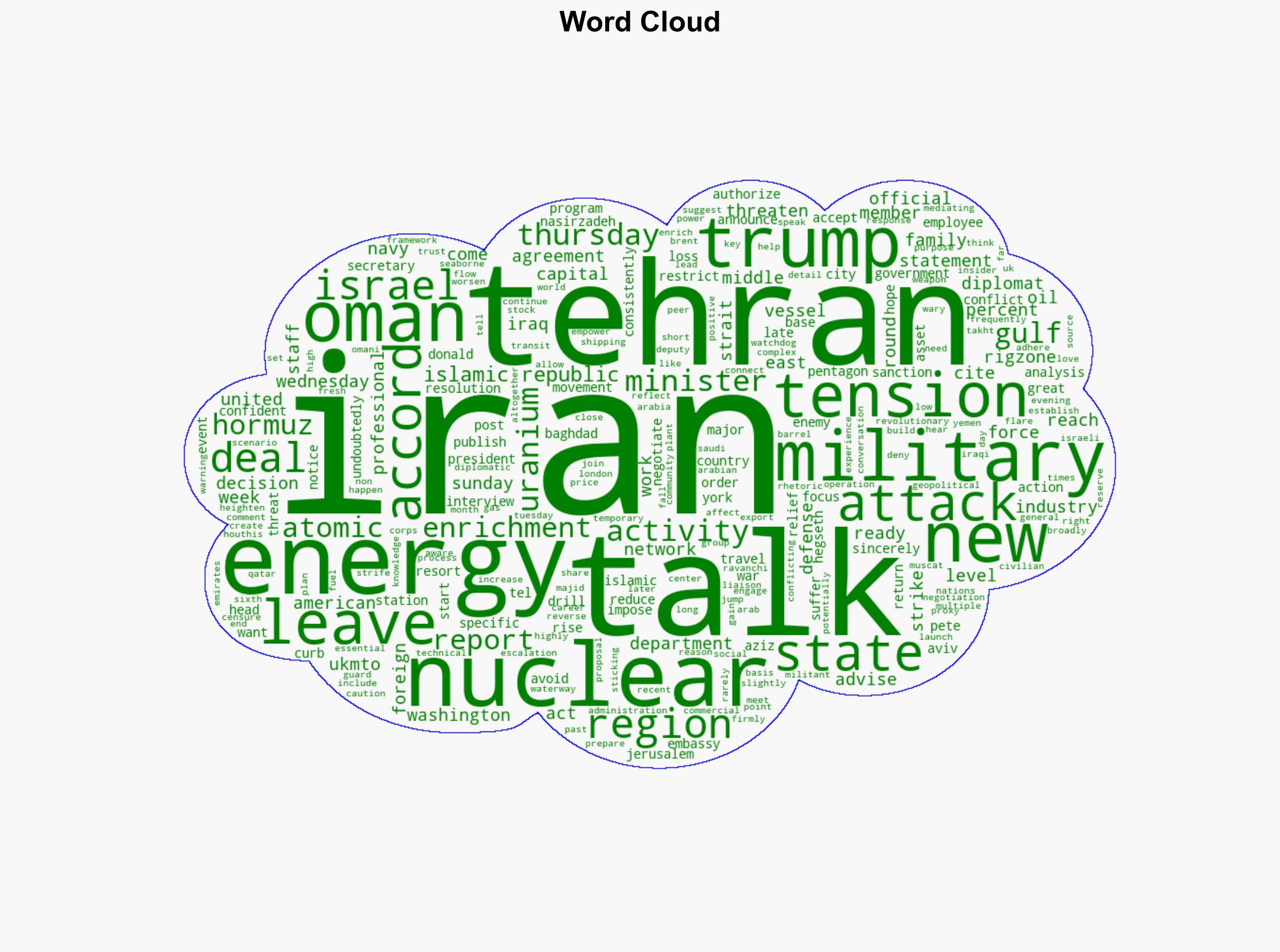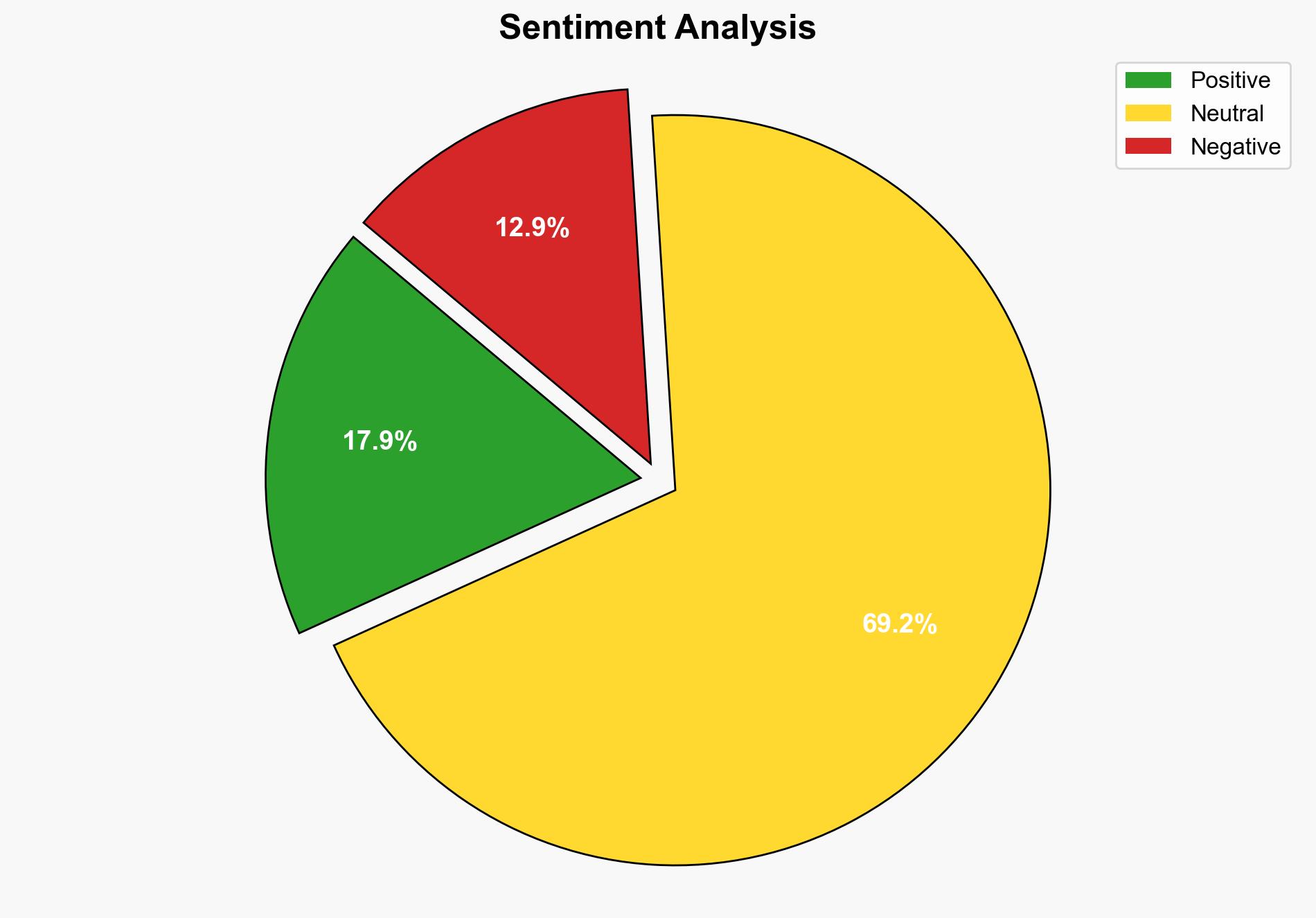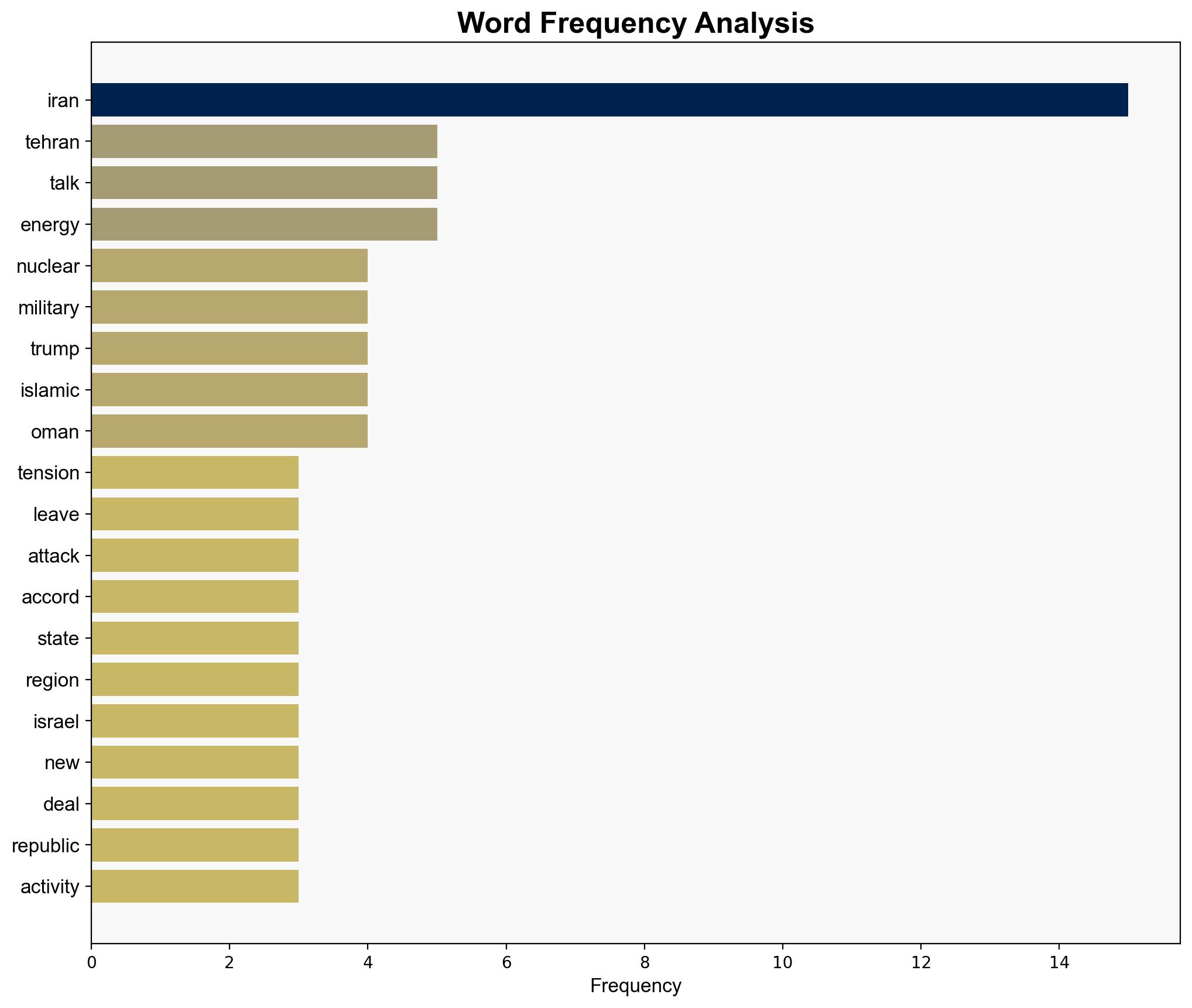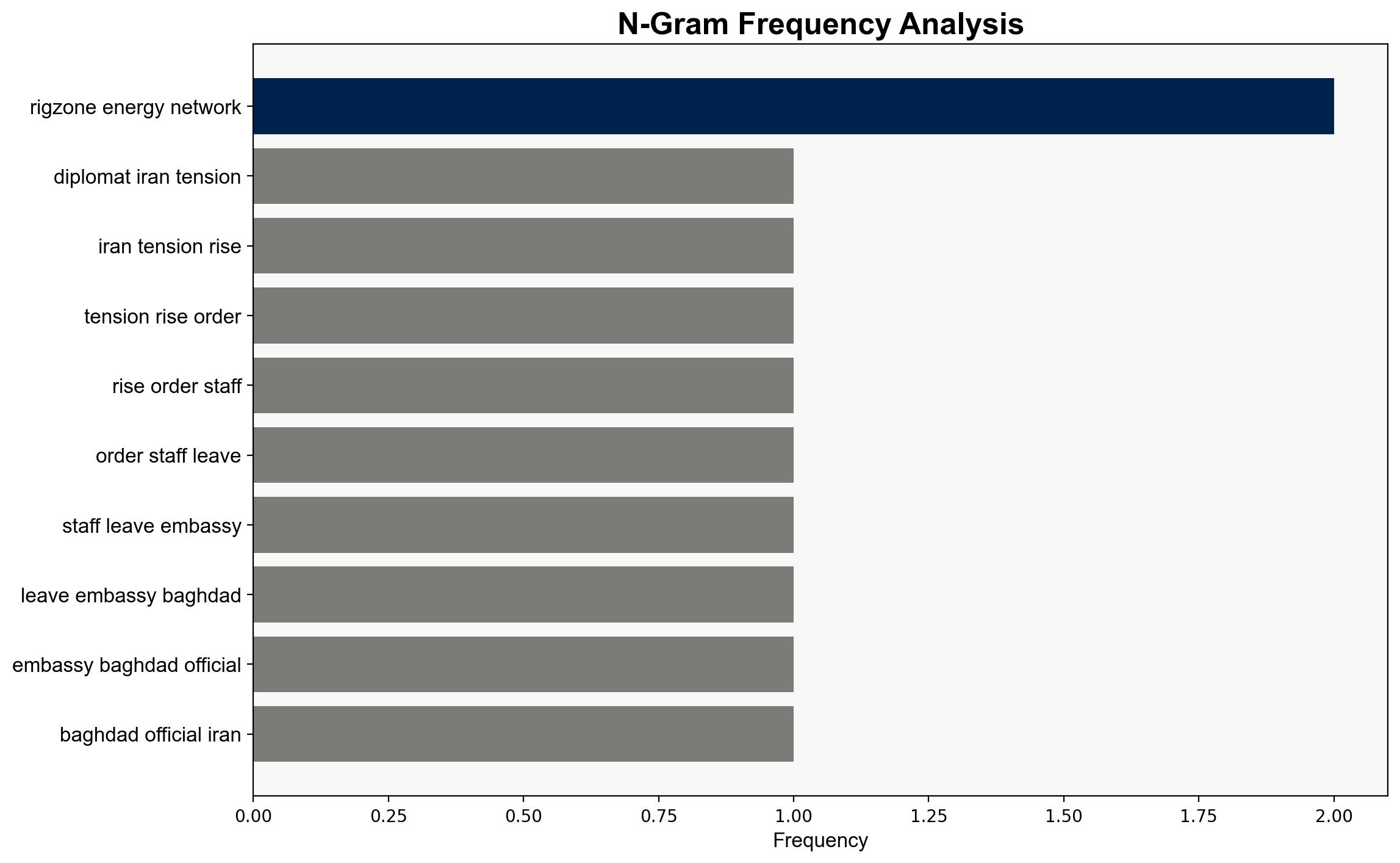US Moves Some Diplomats as Iran Tensions Rise – Rigzone
Published on: 2025-06-12
Intelligence Report: US Moves Some Diplomats as Iran Tensions Rise – Rigzone
1. BLUF (Bottom Line Up Front)
The United States has initiated the relocation of some diplomats from Iraq amid escalating tensions with Iran. This decision follows threats from Iran to target American assets in the Middle East, potentially in response to developments in Iran’s nuclear program. The situation is compounded by regional military activities and diplomatic negotiations, indicating a volatile geopolitical environment. Immediate recommendations include enhancing regional security measures and preparing for potential disruptions in oil supply routes.
2. Detailed Analysis
The following structured analytic techniques have been applied to ensure methodological consistency:
Causal Layered Analysis (CLA)
Surface events include the relocation of US diplomats and military exercises by Iran. Systemic structures involve US-Iran diplomatic negotiations and regional alliances. Worldviews reflect ongoing distrust between the US and Iran, with myths centered around historical conflicts and nuclear ambitions.
Cross-Impact Simulation
The relocation of diplomats may strain US-Iraq relations and impact regional stability. Economic dependencies on oil exports could exacerbate tensions if supply routes are disrupted.
Scenario Generation
Potential scenarios range from successful diplomatic negotiations leading to de-escalation, to increased military confrontations if talks fail.
Network Influence Mapping
Key actors include the US, Iran, Israel, and regional militant groups. Their interactions could significantly influence regional stability.
Bayesian Scenario Modeling
Forecasting suggests a moderate probability of increased military activity, with a higher likelihood of diplomatic engagement if negotiations are prioritized.
3. Implications and Strategic Risks
The primary risks include potential military confrontations, disruptions in oil supply through the Strait of Hormuz, and heightened regional instability. Cyber threats and economic sanctions could further exacerbate tensions, impacting global markets and energy security.
4. Recommendations and Outlook
- Enhance security protocols for US personnel and assets in the region.
- Engage in diplomatic efforts to de-escalate tensions and facilitate negotiations.
- Monitor oil supply routes and prepare contingency plans for potential disruptions.
- Scenario-based projections: Best case – successful diplomatic resolution; Worst case – military conflict; Most likely – ongoing negotiations with intermittent tensions.
5. Key Individuals and Entities
Donald Trump, Aziz Nasirzadeh, Majid Takht Ravanchi
6. Thematic Tags
national security threats, cybersecurity, counter-terrorism, regional focus





